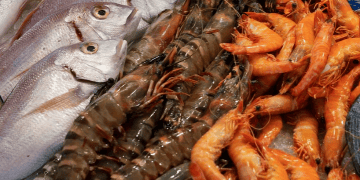Japan has officially asked China to lift its ban on seafood imports from Japan. This ban was put in place by China after Japan began releasing treated radioactive water from the Fukushima Daiichi nuclear power plant into the Pacific Ocean on August 24, 2023. This decision has created tension between the two countries.
In response to China’s worries, Japan has been working diplomatically to resolve the issue. Prime Minister Fumio Kishida announced that China is planning to ease the import ban and will help monitor the treated water discharges with the United Nations’ atomic agency overseeing the process. This plan includes involving Chinese scientists to ensure everything is safe and transparent.
Despite these diplomatic efforts, China has kept its ban in place, citing safety issues. Japan argues that the release of the treated water is safe and meets international standards, a fact confirmed by the International Atomic Energy Agency (IAEA). The Japanese government is also seeking talks with China under the Regional Comprehensive Economic Partnership (RCEP) agreement to push for the immediate lifting of the ban.
The ban has had a big impact on Japan’s seafood industry, especially hurting exports like scallops. In light of this, Japan has stepped up its efforts to sell seafood to other markets in Asia, the U.S., and Europe. The Japan External Trade Organization (JETRO) is playing a key role in redirecting exports and organizing events to promote Japanese seafood worldwide.
This situation is an important topic in Japan-China relations, with both countries looking for a way to address safety concerns while also minimizing economic damage. Ongoing diplomatic talks aim to find a solution and restore normal trade relations in the seafood sector.
Catch the latest supply chain news at The Supply Chain Report. Learn more about international trade at ADAMftd.com with free tools.
#JapanChinaRelations #SeafoodExport #FukushimaWater #TradeTensions #DiplomacyInAsia #JapanSeafoodIndustry #ChinaImportBan #IAEA #JETRO #RCEP















